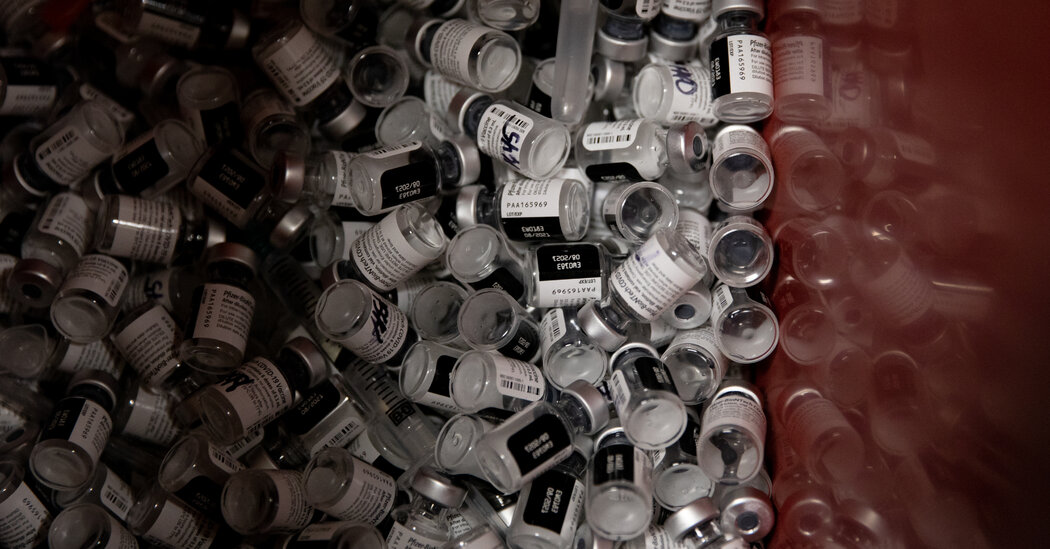
The Pfizer-BioNTech coronavirus vaccine is 90 percent effective at preventing hospitalization for up to six months, with no signs of waning during that time period, according to a large new U.S. study conducted by researchers at Pfizer and Kaiser Permanente.
The vaccine also provides powerful protection against the highly contagious Delta variant, the scientists found. In a subset of people who had samples of their virus sequenced, the vaccine was 93 percent effective against hospitalization from Delta, compared with 95 percent against hospitalization from other variants.
“Protection against hospitalization remains high over time, even when Delta predominates,” said Sara Tartof, an epidemiologist at Kaiser Permanente Southern California and the first author of the study.
The vaccine’s effectiveness against infection did decline over time, however, falling from 88 percent during the first month after vaccination to 47 percent after five months.
The findings, published in The Lancet on Monday, come amid a debate over whether, and when, booster shots may be necessary. The Food and Drug Administration has authorized boosters for recipients of the Pfizer vaccine who are 65 or older or at high risk for infection or severe disease. And the Biden administration has pushed for boosters to be made more widely available to the general population.
But many scientists and public health experts have pushed back, arguing that the nation’s priority should be getting the shots to people who have not yet been vaccinated and that the vaccines still appear to provide good protection against the worst outcomes, including severe disease and death.
Data from Israel indicates that the Pfizer vaccine’s effectiveness against infection dropped to 39 percent in late June and early July, down from 95 percent in January through early April. But it remained more than 90 percent effective against severe disease during that time period.
On the other hand, a recent study from the Centers for Disease Control and Prevention reported that the vaccine’s effectiveness against hospitalization dropped to 77 percent after four months, compared to 91 percent in the first few months.
In the new study, the researchers analyzed the electronic health records from more than 3.4 million members of Kaiser Permanente Southern California, between Dec. 14, 2020, and Aug. 8, 2021.
Overall, the vaccine was 90 percent effective against hospitalization and 73 percent effective against infection. Among those who were 65 or older, it was 86 percent effective against hospitalization and 61 percent effective against infection.
The researchers sequenced more than 5,000 samples of the virus. Overall, the Delta variant made up 28 percent of these samples, though it was the dominant variant in June and July.
The vaccine was slightly less effective against Delta than the other variants, providing 75 percent protection against infection with Delta, compared to 91 percent protection against the other variants.
But protection against infection declined at a similar rate over time, the researchers found. After four months, the effectiveness against infection had dropped to 53 percent against Delta and 67 percent against the other variants.
The findings could give fuel to both sides of the booster debate, Dr. Tartof said.
“The question is what do you want your booster program to do?” she said. Some may say this data supports boosters because it shows an increase in breakthrough infections over time, she said. Others, though, could point to the vaccine’s steady protection against severe disease and argue that boosters aren’t necessary.



